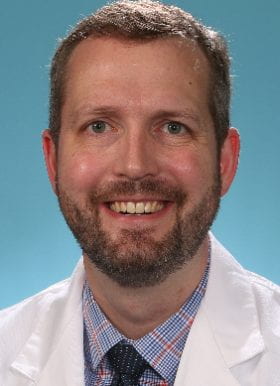
Asher Albertson, MD, PhD
Assistant Professor, WashU Neurology
- Phone: 314-362-2999
- Email: albertsona@nospam.wustl.edu
Molecular, cellular, and network mechanisms of cerebral recovery after severe injury
Ischemic stroke occurs when blood flow to the brain is compromised, leading to injury and cell death in downstream neural structures. Outside of quickly restoring cerebral perfusion, few interventions exist which decrease injury and improve recovery after stroke. As such, stroke remains the second leading cause of long-term disability worldwide. My laboratory is focused on better understanding the molecular, neuronal, and network drivers of injury and recovery after ischemic brain injury. Our long-term goal is to leverage this understanding into therapeutic targets with the potential improve outcomes after ischemic stroke. We use a variety of techniques to study stroke in rodent models of ischemia. These include histology/protein expression, viral mediated gene transfer, interference RNA, transgene expression, tract tracing, chemogenetic activation, rodent behavior, and widefield calcium imaging. I have a special interest in the relationship between normal aging and stroke. Older patients are both more likely to have strokes and much less likely to recover after a stroke. A significant portion of our research is dedicated to uncovering the age-related factors that worsen injury and inhibit recovery in elderly stroke patients. We also have projects focused on understanding the role of altered excitation/inhibition balance in injury and recovery after stroke and the role of structural plasticity in cortical remapping after stroke. In addition, we have several ongoing lines of translational research attempting to use clinical EEGs to better understand cortical behavior after stroke and predict worsening in critically ill patients with brain injury. Finally, we have formed several highly productive collaborations with other members of the Washington University neuroscience community examining network disruption and epigenetic changes in stroke and aging. Through these multifaceted approaches, we hope to significantly improve the lives of stroke patients worldwide.